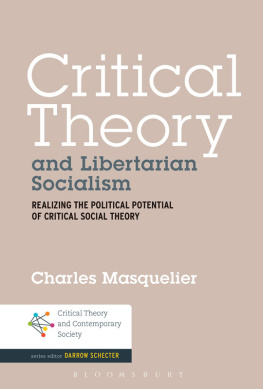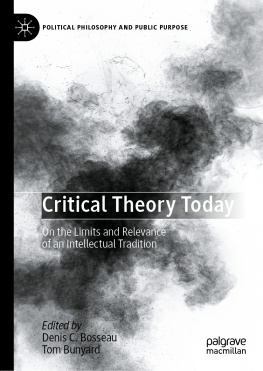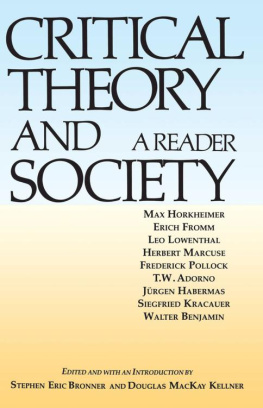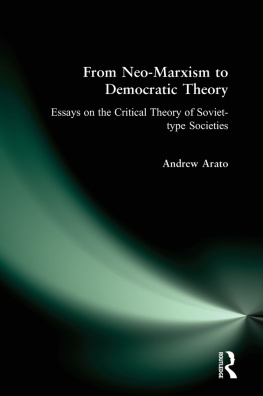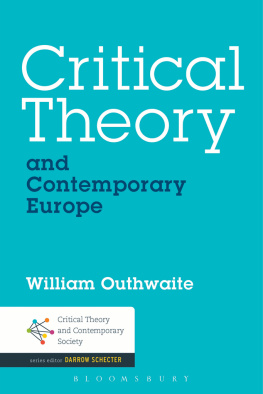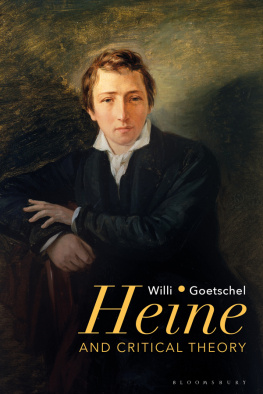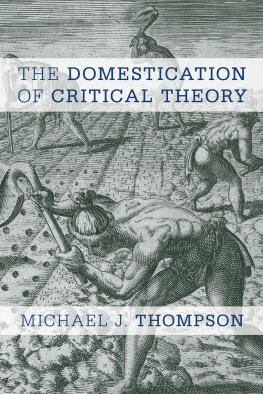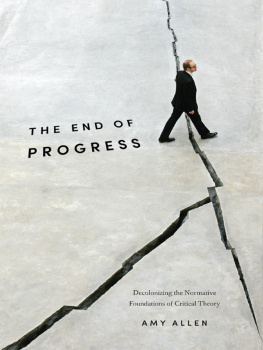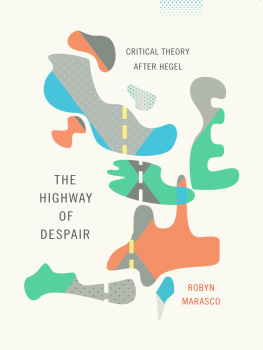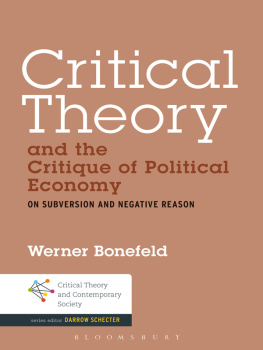Critical Theory
and Libertarian
Socialism
ABOUT THE SERIES
Critical Theory and Contemporary Society explores the relationship between contemporary society as a complex and highly differentiated phenomenon, on the one hand, and Critical Theory as a correspondingly sophisticated methodology for studying and understanding social and political relations today, on the other.
Each volume highlights in distinctive ways why (1) Critical Theory offers the most appropriate concepts for understanding political movements, socioeconomic conflicts and state institutions in an increasingly global wo rld an d (2) why Critical Theory nonetheless needs updating in order to keep pace with the realities of the twenty-first century.
The books in the series look at global warming, financial crisis, postnation state legitimacy, international relations, cinema, terrorism and other issues, applying an interdisciplinary approach, in order to help students and citizens understand the specificity and uniqueness of the current situation.
Series Editor
Darrow Schecter
Reader in the School of History, Art History and Humanities, University of Sussex, UK
BOOKS IN THE SERIES
Critical Theory and Film : Fabio Vighi, Reader and Co-director of the iek Centre for Ideology Critique at Cardiff University, UK
Critical Theory and Contemporary Europe : William Outhwaite, Chair and Professor of Sociology at Newcastle University, UK
Critical Theory, Legal Theory, and the Evolution of Contemporary Society : Hauke Brunkhorst, Professor of Sociology and Head of the Institute of Sociology at the University of Flensburg, Germany
Critical Theory in the Twenty-First Century : Darrow Schecter, Reader in the School of History, Art History and Humanities, University of Sussex, UK
Critical Theory and the Digital : David Berry, Department of Political and Cultural Studies at Swansea University, UK
Critical Theory and the Contemporary Crisis of Capital : Heiko Feldner, Co-director of the Centre for Ideology Critique and iek Studies at Cardiff University, UK
Critical Theory
and Libertarian
Socialism
Realizing the political potential
of critical social theory
CHARLES MASQUELIER

To the memory of my father
Contents
I would firstly like to thank Darrow Schecter for his comments on the book proposal and giving me the opportunity to make my own contribution to this critical theory series. I am also grateful to my ex-colleagues and friends, Alana Lentin and Matt Dawson, in the Sociology department at Sussex University, whose moral and intellectual support has been, and remains, indispensable. Many thanks also go to Luke Martell, Eric Jacobson and the two anonymous reviewers for their invaluable comments on earlier versions of this book.
I would also like to thank Him, Mia and Dave, and the Serruys family for their unique kindness, generosity and joie de vivre , which have played an invaluable role in making the whole process of writing this book manuscript an enjoyable one. I am particularly grateful to my parents, whose constant support amid fundamentally different political views made it possible for this piece to see the light of day.
T he financial crisis of 2007/8 not only developed into one of the most virulent economic crises since the Great Depression of the 1930s but also exposed and exacerbated sharp inequalities within advanced capitalist economies, revealed a striking democratic deficit most clearly illustrated by neoliberal governments decisions to bail out the culprits of the crisis at the expense of ordinary citizens and clearly indicated the extent of existing political elites incapacity to exert control over the large-scale economic structures they were responsible for liberating. Whilst, in the aftermath of the crisis, several political leaders and commentators called for, and even signalled the end of, a predatory form of capitalism, practical orientations of the critical theory of the Frankfurt School and updating the libertarian socialism of G.D.H. Cole .
Humanity, nature and the task of critique
As an age characterized by major economic, political and cultural changes, modernity marked a major turning point in the history of Western societies. The development of democratic forms of representation, rational-scientific explanations and industrialization all appeared to be steering humanity towards a highly promising future, characterized by an unprecedented level and speed of accumulation of wealth and technological development, as well as significant improvements in material well-being. At the basis of such developments could be found a shift of attention from nature as the source of marvels and new powers to the human instruments whereby these natural forces were discovered, integrated, and made serviceable for mans purposes (Leiss 1972, 76). Modernitys own stance towards progress along with its material achievements are, in this sense, grounded in a historically specific relationship between humanity and external nature, namely the instrumental mastery of the latter by the former. With Marx, however, one finds one of the very first attempts to significantly call into question the basis upon which such achievements have been made possible.
Although aware of the progressive character of this new phase of social development, he sought to expose the pernicious effects associated with the dominant form of economic organization underpinned by the newly emerging relationship between humanity and external nature mentioned above. Whilst capitalism had led to an unprecedented pace of economic growth and technological development, Marx pointed out, it had failed to bring about the economic and socio-political institutions whereby the direct producers, that is, the majority of the population, could exert control over their conditions of existence and reap the due rewards of their work. The universalism of the political community, he argued, consisted of a system of laws aimed at securing the private interests of owners of capital, and maintaining the exploitative and alienating character of the sphere of material reproduction. As a diagnosis exposing the relations between political and economic principles underpinning the social failings of modernity, therefore, his theoretical framework came to assume the form of a critique of political economy . Its primary aim was to transcend the economic and socio-political institutions that have prevented modernity from realizing its own promise of human dignity. With Marx, then, one witnesses the emergence of a social theory primarily oriented towards a form of political action leading to the radical re-organization of economic life, However, according to his later works, social change was not a merely desirable goal. It came to be construed as the inevitable consequence of the self-destructive dynamism of a form of capital accumulation relying upon the continuous expansion of productive forces. The relationship between humanity and external nature underpinning the capitalist mode of production, he came to argue, would eventually liberate humanity from the fetters of wage-slavery. Marxs unity of theory and practice, therefore, immediately appears inextricably tied to the instrumental mastery of external nature steering the capitalistic development of productive forces.
A few decades later, a school of thought heavily inspired by new intellectual and socio-historical developments came to question the viability of Marxs own critique of modernity. The emergence of totalitarian regimes in Europe, combined with the development of capitalism into its advanced form, led the first generation of Frankfurt School theorists as instrumental interventions in the world whose effects have proved partly detrimental to nature and humanity, then, one discovers that the [m]astery of nature has not brought man to self-realization (Horkheimer 2012, 4), and that the prospects of human emancipation could no longer merely rely on the development of productive forces:
Next page
